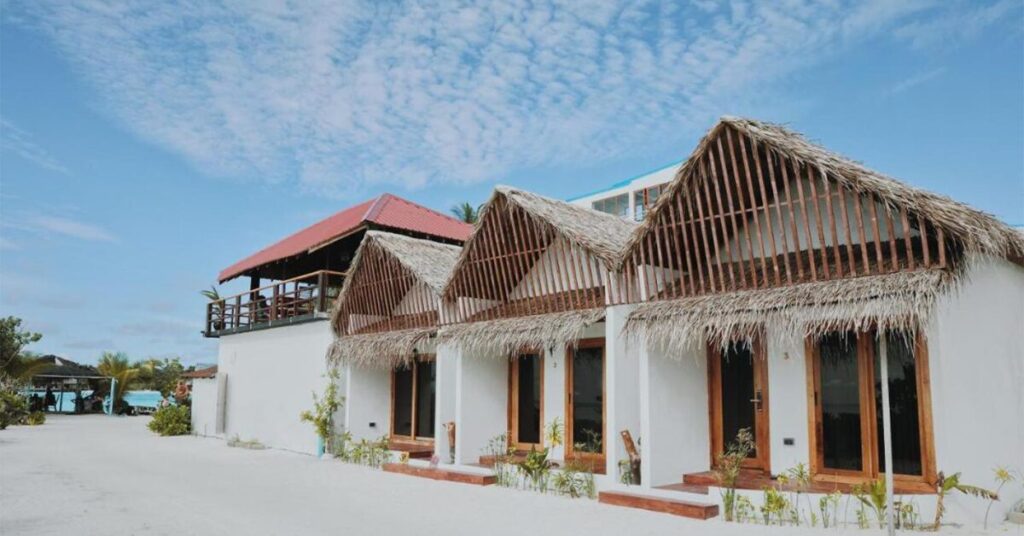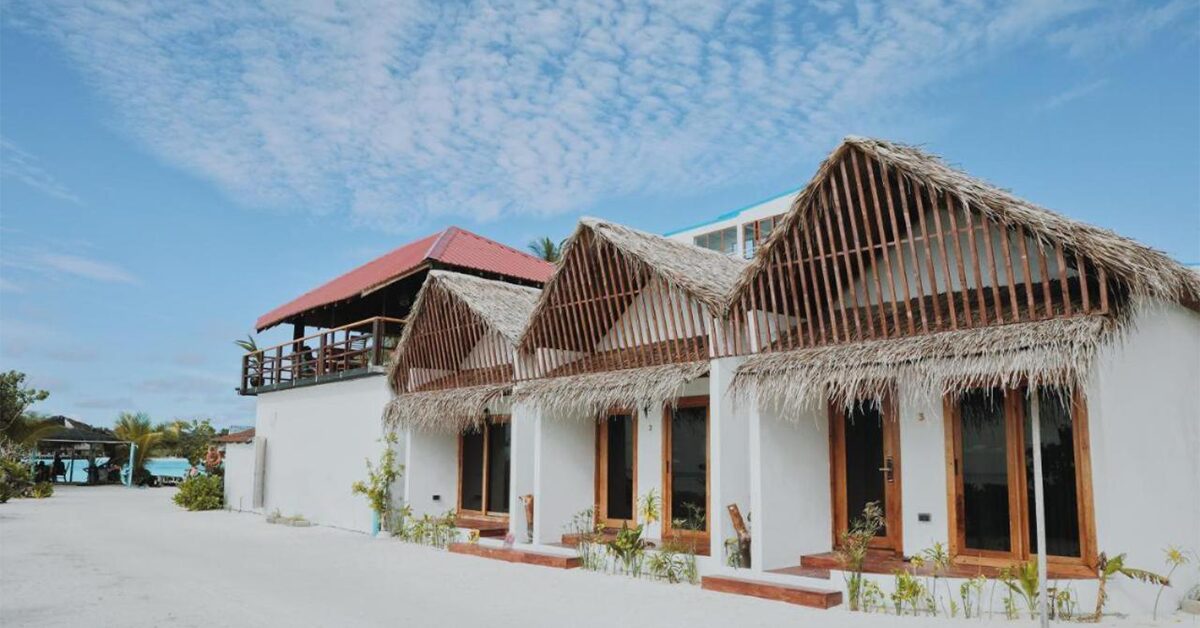The Maldivian tourism industry is undergoing a significant transformation with the rise of guest houses on local islands. Traditionally known for its luxurious resorts, the Maldives is now attracting a different segment of tourists, thanks to more affordable lodging options. This shift is a direct result of strategic initiatives aimed at promoting local tourism and allowing tourists and locals to experience the islands beyond their home bases.

The concept of guest house tourism began to take root in places like K. Maafushi, Dhiffushi, and Thulusdhoo in the Kaafu Atoll. These islands have seen a boom in guest house businesses, with platforms like Airbnb, Booking.com, and other booking websites making it easier for tourists to book rooms. The appeal is clear: while staying in a local guest house, tourists can enjoy similar services, such as diving, at a fraction of the cost. For example, diving excursions that cost around USD 50 at guest houses are significantly cheaper compared to the USD 150 charged by resorts.
This pricing disparity extends to accommodation as well. Where resort stays can exceed USD 450 per night (excluding flight costs), a holiday at a local guest house can be enjoyed for about USD 450 over six days. Consequently, budget-conscious travelers are increasingly opting for guest houses, leading to a substantial rise in visitor numbers to these islands.

Opinion: A Tsunami of Change in the Maldivian Hospitality Industry
The burgeoning guest house market has had a profound impact on the traditional resort sector. According to a seasoned professional with over 25 years in the Maldivian hospitality industry, the rise of guest houses has hit resorts “like a tsunami.” Another industry veteran revealed to The Arrival that this shift was anticipated and warned against, yet it has nonetheless resulted in a significant downturn in resort occupancy rates, now often below 45%. For resorts, maintaining at least a 40% occupancy rate is crucial to break even; anything below this threshold results in financial losses.
This new wave of tourism has also led to the establishment of amenities like bikini beaches in places like Maafushi, catering specifically to tourists. While these developments boost local economies and provide affordable holiday options, they also pose cultural challenges. The integration of such amenities into the traditional Maldivian way of life requires careful balancing to ensure the preservation of local culture and values.
Personal Stories of Change
One local business owner who runs a guest house in Maafushi, shared how his business has flourished over the past few years. “We’ve seen a significant increase in bookings, especially through platforms like Airbnb and Booking.com. Tourists love the fact that they can get a full experience of the Maldives without breaking the bank,” Ahmed said. He also noted that many of his guests appreciate the local culture and enjoy interacting with the island’s residents, which enhances their travel experience. On the other side a manager at a luxury resort in the South Atoll, expressed concerns over the declining occupancy rates. “Our resort used to be fully booked months in advance, but now we are
struggling to fill rooms. The rise of guest houses has impacted us. We are now looking at ways to offer more competitive packages and unique experiences to attract visitors,” she said.
Economic and Cultural Implications
The shift towards guest house tourism is not just an economic phenomenon but also a cultural one. The influx of tourists to local islands means more interaction between visitors and residents, fostering cultural exchange. However, it also raises concerns about the potential erosion of traditional Maldivian culture and values. The establishment of amenities such as bikini beaches, which cater to tourists’ preferences, can sometimes clash with local customs.
The economic benefits are clear. Local guest houses provide employment opportunities and stimulate the island economy. They also offer a more diverse range of price points for tourists, making the Maldives accessible to a broader audience. However, the challenge lies in managing this growth sustainably. Environmental concerns, such as waste management and the preservation of marine life, need to be addressed to ensure that the natural beauty of the Maldives remains intact.
Conclusion
The rise of guest house tourism in the Maldives reflects broader trends in global travel where affordability and accessibility are key drivers. While this shift offers economic benefits and more inclusive tourism opportunities, it also presents challenges that need addressing to maintain the unique allure of the Maldives. The hospitality industry must navigate these changes carefully, balancing economic interests with cultural preservation to ensure a sustainable future for Maldivian tourism. As the industry evolves, the Maldives must find a way to embrace this new wave of tourists while preserving the very essence that makes it a world-renowned destination



